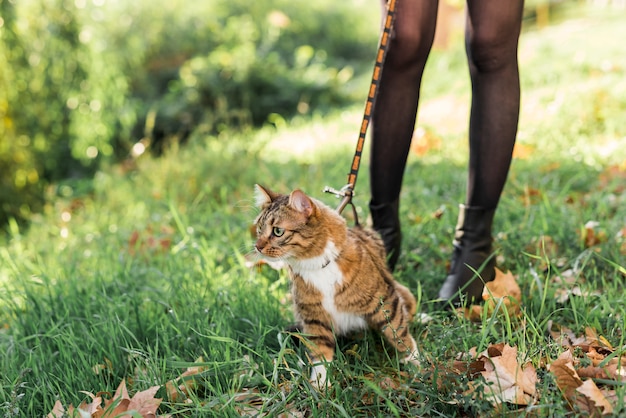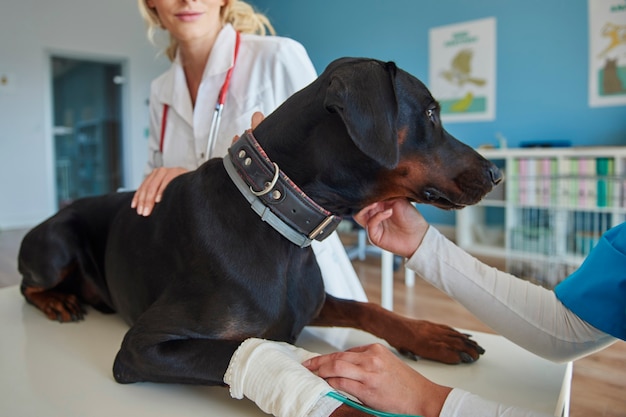How to Spot Reduced Mobility in Your Cat


How to Spot Reduced Mobility in Your Cat
For many cat owners in West Caldwell and surrounding communities, noticing subtle changes in a beloved feline’s movement can be both confusing and concerning. Cats are instinctively skilled at masking discomfort, so it’s easy to overlook early signs of mobility problems. Yet, catching these changes early is vital to ensuring your cat maintains a high quality of life and independence. At Alpha Animal Rehab & Fitness, located at 975 Bloomfield Ave, Suite 1, West Caldwell, NJ 07006, our veterinary professionals specialize in cat rehabilitation and feline physical therapy. Our goal is to restore comfort, increase agility, and help your cat move with confidence using advanced techniques and compassionate care.
In this guide, we’ll explore the most common signs of cat mobility problems, discuss what causes these issues, and explain how targeted cat rehabilitation in West Caldwell can make a life-changing difference. You’ll learn how to recognize when your cat needs help, the treatment options available at Alpha Animal Rehab & Fitness, and when it’s time to seek support from a specialist vet near me. You’ll also discover practical tips for supporting your cat at home, and how our expert team can guide you every step of the way. If you’re searching for cat mobility solutions or cat rehabilitation in West Caldwell, you’re in the right place. For more on how our specialized team can help your cat regain comfort and movement, explore our cat rehabilitation and physical therapy services.
Recognizing Cat Mobility Problems: Early Signs to Watch For
Cats rarely complain when something is wrong; instead, they subtly adapt their behavior to compensate for pain or stiffness. This makes it important for pet owners to observe their cat’s daily routine and notice any changes in movement or activity level. Signs of cat mobility problems often include hesitation when jumping onto furniture, difficulty climbing stairs, or a reluctance to use the litter box if it requires stepping over a high edge. You might notice your cat grooming less, especially in hard-to-reach areas like the lower back or hind legs. Other symptoms can appear as a stiff or awkward gait, occasional limping, or an increased amount of time spent resting rather than playing or exploring.
It’s not uncommon for owners to attribute these changes to normal aging, but even senior cats should be able to move comfortably. A cat that used to eagerly chase toys but now sits on the sidelines, or one that vocalizes when picked up or touched in certain spots, may be experiencing underlying discomfort that warrants attention. These early warning signs are particularly important if you live in a multi-level home in West Caldwell, where stairs and furniture are a daily part of your cat’s environment. Recognizing these changes early can prompt timely intervention, ensuring your cat receives the specialized cat rehabilitation services needed to restore their quality of life.
Common Causes of Reduced Mobility in Cats
Understanding why cats develop mobility problems helps pet owners make informed decisions about their care. Age-related arthritis is perhaps the most frequent culprit, causing chronic joint inflammation and pain that gradually limits a cat’s ability to move. However, other conditions can contribute, including injuries from falls, muscle strains, neurological disorders, or complications from previous surgeries. In younger cats, traumatic injuries or congenital conditions may also reduce mobility.
Obesity is a significant risk factor, as excess weight puts additional strain on joints and muscles, accelerating the wear and tear that leads to stiffness. Environmental factors, such as slippery floors, tall litter boxes, or limited opportunities for exercise, can make movement more challenging and exacerbate existing issues. In regions like West Caldwell, where seasonal weather changes may encourage cats to spend more time indoors, reduced activity can further impact joint health and muscle strength.
For some cats, chronic pain conditions like intervertebral disc disease or hip dysplasia also play a role. If you’re interested in learning more about how these specific conditions affect mobility and what rehabilitation strategies can help, you might find our resources on intervertebral disc disease (IVDD) and hip dysplasia management helpful. By understanding the root cause of your cat’s mobility problems, you and your veterinarian can develop a tailored rehabilitation plan that addresses both the symptoms and the underlying condition.
Expert Treatment Options: Cat Rehabilitation in West Caldwell
When it comes to restoring feline mobility, specialized cat rehabilitation offers a targeted, evidence-based approach that goes far beyond traditional care. At Alpha Animal Rehab & Fitness, our veterinary professionals use a combination of manual therapy, therapeutic exercise, and advanced modalities such as laser therapy and underwater treadmill sessions. The first step is a comprehensive assessment, where our team evaluates your cat’s gait, muscle strength, joint flexibility, and pain level. This allows us to create a customized cat rehabilitation plan designed specifically for your cat’s needs.
Manual therapy techniques involve gentle manipulation and massage, helping to relieve tension, improve circulation, and restore range of motion. Therapeutic exercise sessions focus on rebuilding muscle strength and coordination, using safe, low-impact movements that are both effective and engaging for your cat. For cats experiencing significant pain or inflammation, laser therapy or pulsed electromagnetic field (PEMF) treatments can provide relief and accelerate healing. To discover more about how these therapies work, explore our information on laser therapy using infrared technology, manual therapy options, and therapeutic exercise for pets.
Our team also addresses environmental modifications, recommending ramps, soft bedding, or litter boxes with lower sides to minimize discomfort at home. For overweight cats, tailored weight management programs play a crucial role in supporting long-term joint health. Throughout the rehabilitation process, we work closely with pet owners to ensure every aspect of the plan fits your cat’s personality and lifestyle, making cat rehabilitation in West Caldwell a truly personalized experience. If your general practitioner has referred you to a specialist vet near me for feline mobility concerns, rest assured that our facility is equipped to provide the advanced care your cat needs.
Supporting Your Cat at Home: Prevention and Daily Care
While professional cat rehabilitation delivers the most significant improvements for cats with mobility problems, there are meaningful steps you can take at home to support your pet’s comfort and independence. Ensuring your cat maintains a healthy weight is one of the most effective ways to reduce stress on joints and minimize pain. Regular play sessions, using toys that encourage gentle movement, help preserve muscle mass and agility. It’s also wise to provide easy access to favorite resting spots by adding steps or ramps where needed, especially if your cat enjoys windowsills or high perches.
For cats that struggle with litter box access, switching to a box with lower sides or placing it in a more accessible location can prevent accidents and encourage continued use. Soft, supportive bedding and non-slip mats in key areas reduce the risk of slips and falls, making it easier for your cat to move around the home. Keeping claws trimmed and providing regular grooming support ensures your cat doesn’t struggle with self-care tasks due to limited flexibility.
Environmental enrichment remains crucial, particularly for indoor cats during colder months in West Caldwell, when outdoor activity naturally decreases. Puzzle feeders, scratching posts, and gentle interactive games all help maintain mental and physical stimulation. If you notice any changes in your cat’s movement, appetite, or behavior, don’t hesitate to contact a specialist vet near me for early evaluation. Small adjustments at home, combined with professional guidance, set the stage for lasting improvements in mobility and quality of life.
When to Seek Professional Veterinary Care for Cat Mobility Problems
Knowing when to transition from home care to professional intervention is an essential part of responsible pet ownership. If your cat shows persistent reluctance to move, avoids stairs or jumping, or has difficulty accessing the litter box for more than a few days, these are strong indicators that a veterinary evaluation is needed. Sudden limping, vocalizing in pain, or dramatic changes in behavior also warrant immediate attention. Cats recovering from surgery, injuries, or chronic illnesses benefit from specialized cat rehabilitation in West Caldwell to speed healing and prevent secondary complications.
For many cat owners in West Caldwell and surrounding communities, finding a specialist vet near me with expertise in feline mobility issues can feel overwhelming. At Alpha Animal Rehab & Fitness, our veterinary professionals partner with your primary care veterinarian to deliver advanced rehabilitation services tailored to your cat’s unique needs. Our referral-based model ensures that every patient receives individualized care, using the latest therapeutic techniques and equipment. If you’re uncertain whether your cat’s symptoms require intervention, our team is always available to consult and provide guidance on the next steps.
To better understand how our approach addresses specific conditions like arthritis, you can read about arthritis management for pets on our website. We’re committed to helping you make informed decisions, ensuring your cat receives the right level of care at the right time.
Restoring Comfort and Agility: Take the First Step Toward Better Mobility
Spotting the early signs of cat mobility problems is one of the most important things you can do to protect your cat’s comfort, independence, and overall wellbeing. By staying alert to subtle changes in movement, grooming habits, and behavior, you can intervene before minor issues become significant obstacles. Professional cat rehabilitation in West Caldwell, delivered by the experienced veterinary professionals at Alpha Animal Rehab & Fitness, offers a path to restored function and a happier, healthier life for your feline companion.
If you’re seeking a specialist vet near me for cat mobility problems, or want to learn how feline rehabilitation can help your pet thrive, contact our dedicated team today. You can call us at (908) 454-2273 or visit our facility at 975 Bloomfield Ave, Suite 1, West Caldwell, NJ 07006. For more on our full range of cat rehabilitation and physical therapy services in West Caldwell, explore our cat rehabilitation and physical therapy page. Our veterinary professionals are here to guide you, answer your questions, and help your cat regain the mobility and comfort they deserve.
Disclaimer: This blog is intended for informational purposes only and does not replace professional veterinary evaluation. If you suspect your cat is in pain or experiencing mobility issues, contact your veterinarian or a specialist as soon as possible.




